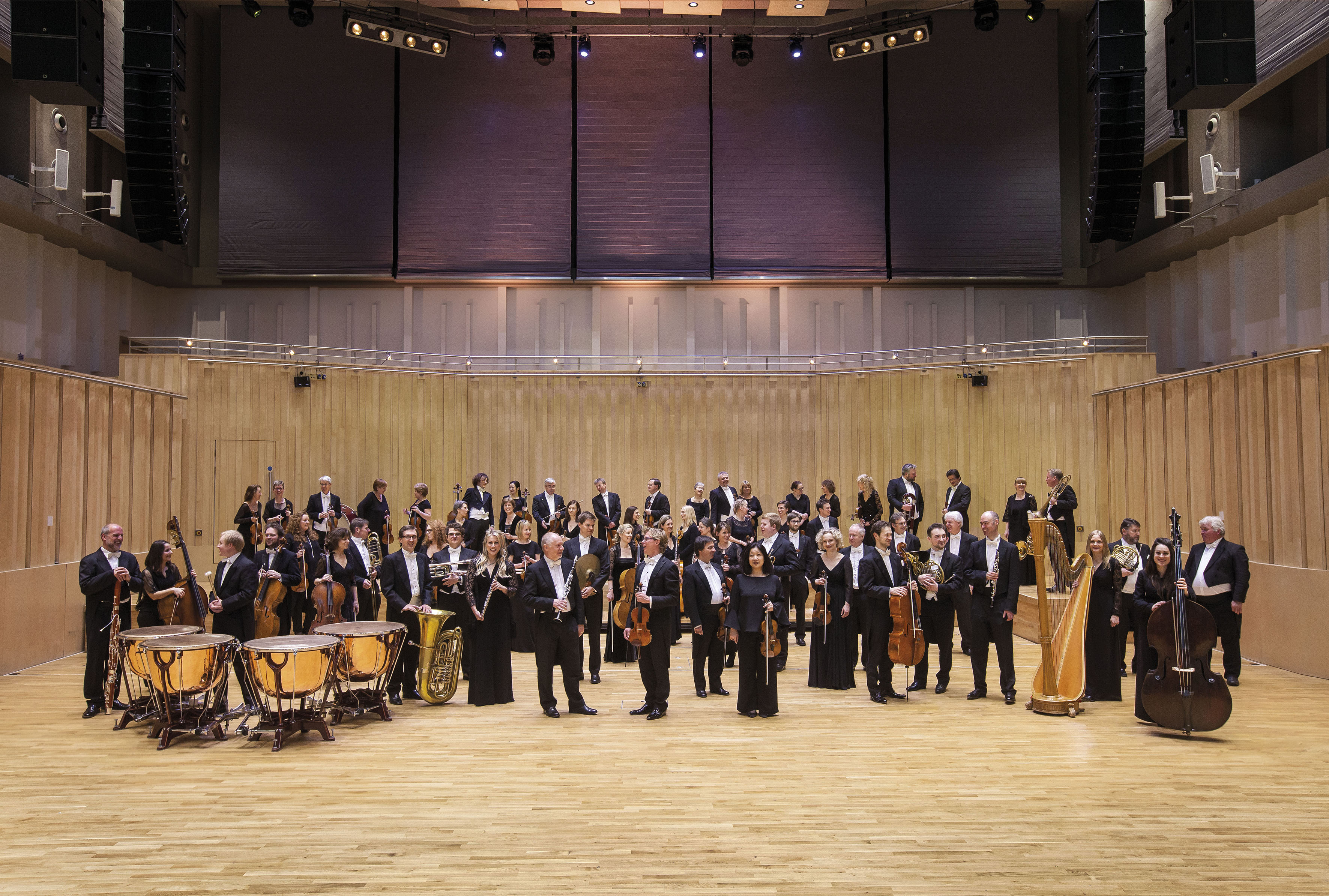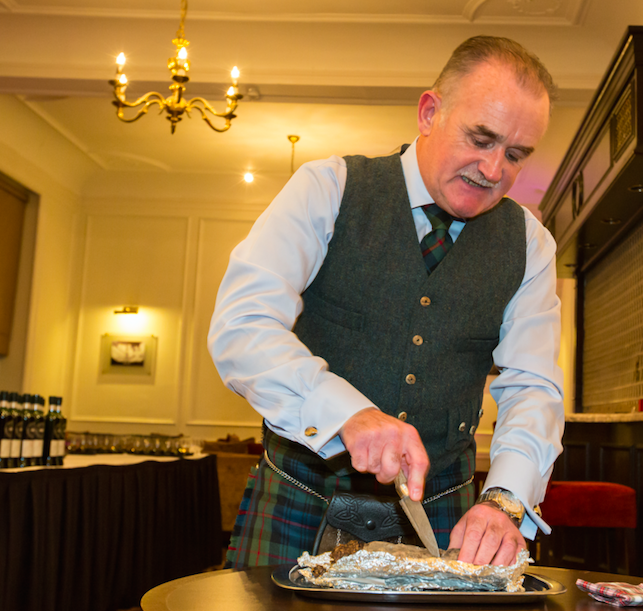Blackadders Solicitor Samera Ali talks about the differences in Scottish & Islamic Inheritance Law in her first Vlog.
Click here to watch the full video: https://lnkd.in/e-Jx95G
For more information on Wills and setting one up please contact our Private Client team by visiting www.blackadders.co.uk
Getting ready to celebrate Scotland’s national poet? The SMWS can help with that – with our guide to how to throw a great Burns Supper, along with the best whisky.
What other poet can you think of who is celebrated not only for their written work, but in song, music, food and most importantly whisky? We should all give thanks for the extraordinary life and work of Robert Burns, the ploughman poet whose life and work is remembered on or around 25 January, the anniversary of his birth in 1759.
The Burns Supper has now been held since a group of the poet’s friends held the first gathering a few years after his death at the age of only 37. It’s now a worldwide event and has grown to include certain key elements. But as a maverick himself, we’re confident Burns would have approved of any form of celebration – as long as it includes a few drams.
If you can’t make it to one of the Society’s official events, why not organise a Burns Supper of your own? You can pick and choose between what elements to include, but the key points to consider are:
Decide who’s going to be master (or mistress) of ceremonies: it helps to have someone appointed to keep the evening running smoothly and make the appropriate introductions.
Prepare a haggis: it’s hard to imagine a Burns Supper without Scotland’s national dish, served with neeps (turnip) and tatties (potatoes). If the ingredients are too much for some delicate stomachs, there’s always a vegetarian option.
Address the haggis: no great chieftain o’ the puddin’ race should be consumed unaddressed. Even if you don’t understand every word, a passionately delivered Address to a Haggis gets the evening well underway.
Plan some speeches: if you’re going to properly celebrate Burns the poet, you should have someone prepared to deliver the Immortal Memory, a tribute to his life and work. For a bit of fun, try to persuade your guests to deliver both a Toast to the Lassies, and of course, the right to reply from one of your female guests.
Poetry is not optional: you might not be able to persuade anyone to recite all 224 lines of Tam O’Shanter, Burns’s most famous epic poem. But there are plenty more to choose from, with more than a few whisky references as well. For his description of barley’s journey from field to glass, look no further than John Barleycorn, which ends:
‘Twill make a man forget his woe;
‘Twill heighten all his joy;
‘Twill make the widow’s heart to sing,
Tho’ the tear were in her eye.’
Then let us toast John Barleycorn,
Each man a glass in hand;
And may his great posterity
Ne’er fail in old Scotland!
WHAT TO DRINK
Whatever form your celebrations take, you need the right whisky, and there’s an appropriate dram for each stage of your Burns Supper. Here’s what we recommend:
To pipe in the haggis
Get your evening underway by welcoming in the haggis to the sound of the pipes. We can’t all get Pipe Major Iain Grant at our own Burns Supper – he’ll be busy at The Vaults – but he recommends a recording of either the Burns standard Is There for Honest Poverty (A Man’s a Man for A‘That) or a non-Burns work celebrating the man, The Star o’ Rabbie Burns. Have your guests ready to raise a glass of whisky from our Sweet, Fruity & Mellow flavour profile, such as our special Burns bottling Cask No. 7.195: If Rabbie Burns did afternoon tea.
To go with your meal
There may well be a drop of whisky in your haggis already, but you can enhance its peppery, spicy flavours with a dram from our Spicy & Sweet profile such as Cask No. 13.50: Cajun sweet potato fries. You could pour it over the haggis, but we’d recommend savouring it from the glass.
To go with the speeches
Depending on who’s delivering them, these could go on for a while, so make sure your guests are well topped up with a soothing post-dinner dram from our Deep, Rich & Dried Fruits flavour profile, such as Cask No. 63.44: Deep soul medicine.
To end the night
A rousing chorus of Burns’s Auld Lang Syne is traditional, and what better to round off an unforgettable evening than a warming Peated whisky. Look out for Cask No. 66.112: Smoky, sweet, spicy, salty popcorn.
Find the perfect whisky for your own Burns Supper by visiting our latest Outturn
Scottish entrepreneurs have benefited from a modest uplift in funding for new businesses, according to the Barclays Entrepreneurs Index, which tracks the UK entrepreneurial lifecycle.
It shows that the level of venture capital (VC) available in 2016 increased 9% on the previous 12 months from £11m to £12m, however this followed a major dip from 2014’s £53m funding boost. The number of enterprises receiving VC funding has fallen slightly from 27 to 25.
The number of companies receiving expansion funding fell by 37%, with the totals dropping from £96m to £68m.
While Scotland is still a strong performer for start-ups, it struggles to maintain high growth companies with only 171 in 2016 compared to 221 in the previous year, accounting for a 4% share of companies UK wide.
Scotland is currently home to 58 private equity-backed companies. While this number is down from 72 year-on-year, it compares well with other parts of the UK in terms of the ratio of private-equity backed companies per 1,000. At 0.27, Scotland is behind only Wales (0.41) and London (0.38).
The national picture
Scotland’s figures reflect national trends, as the number of companies receiving VC and expansion funding are both down year-on-year at a UK level. Growth levels among young enterprises are also down with the number of high-growth companies hitting an all-time low, 33% lower than its peak in 2013, and the number of companies receiving venture capital investment is the lowest it has been in the report’s history.
However, with mergers and acquisitions at an all-time high as well as the number of new enterprises being created 8% higher than the previous year, they’ve helped the Entrepreneurs Index see the strongest levels of entrepreneurial outputs since the annual research began in 2011.
John Godfrey, Director, Barclays, Wealth & Investments, Scotland, said: “Scotland has always had a strong start-up culture, even in this challenging environment for Scottish entrepreneurs.
“It’s positive to see funding in our region has picked up on last year, however despite this uplift, investment is down on previous years and the number of high-growth companies has fallen.
“At Barclays, we are continuously looking at ways to help support the UK’s entrepreneurial community, from our Innovation Finance loans to our venture debt funds. We want to ensure enterprises have the tools and resources they need to go on to expand and grow winning businesses that triumph in their industries.”
 ‘Women’s Business Mentoring’ launches nationwide today (1st June 2017) with some of the most recognisable and successful Scottish businesswomen leading the way.
‘Women’s Business Mentoring’ launches nationwide today (1st June 2017) with some of the most recognisable and successful Scottish businesswomen leading the way.
This initiative brings together the connectivity and entrepreneurial spirit of the Scottish Chambers of Commerce Network, Women’s Enterprise Scotland and Scotland’s leading women entrepreneurs: Liz Cameron OBE of Scottish Chambers of Commerce, Carolyn Currie of Women’s Enterprise Scotland, Jeanette Forbes of PCL Group, Poonam Gupta OBE of PG Paper, Marie Macklin CBE of Macklin Partnerships and Petra Wetzel of WEST Brewery.
‘Women’s Business Mentoring’ will match mentors with mentees to create a self-supporting, collaborative community who understand the specific challenges faced by women in business, whether it is accessing finance, overcoming gender bias or managing family responsibilities alongside a business. A dedicated website will help prospective businesses find a mentor, attend events and access key resources. In addition, women in business can also sign up as mentors: www.womensbusinessmentoring.com
Commenting on the launch of Women’s Business Mentoring:
Carolyn Currie, Chief Operating Officer, Women’s Enterprise Scotland, said:
“Research shows that women seek out business advice in the form of mentoring and coaching rather than on a consultancy basis and we know there is a clear need for more business women as mentors, since mixed-sex mentoring relationships may not always be of benefit for everyone. Only 20% of Scottish SME’s are majority-led by women, yet we know that if women started businesses at the same rate as men, this would contribute an additional £7.6bn to Scotland’s economy. I am honoured to play a part in this inspiring initiative and I look forward to collaborating and creating a lasting impact for women in business.”
Liz Cameron OBE, Director & Chief Executive of Scottish Chambers of Commerce, said:
“Our approach is innovative and fresh and is all about tapping into the talents and experience of successful women entrepreneurs and matching them with ambitious, driven and aspiring women in business. I am delighted to have Scotland’s most recognisable and talented business women on board, which reflects the strength of female talent in Scotland, but also our commitment to give back to Scotland, grow our economy and contribute to our local communities.”
Petra Wetzel, Entrepreneur & Chief Executive of West Brewery said:
“Anything that can connect women in business and enable growth in their business is good for Scotland and good for the economy. From my experience, having a Mentor in any aspect of your life can add immense value to personal development. I view mentoring as a valuable asset which can bring a wealth of knowledge, experience and insight to a business. I look forward to personally mentoring aspiring women in business and giving back to the business community.”
Poonam Gupta OBE, Chief Executive of PG Paper and recipient of Entrepreneur of the Year Award at the Scottish SME Business Awards, said:
“Mentoring is all about collaboration, unlocking ideas and talents that an add value to your business and to your life. For many women in business, these talents and ideas can often be overlooked, holding them back and preventing contributions to our economy. That’s why this campaign is so appealing. It’s led by women in business and is for women in business. I have seen first-hand how a business mentor can bring new perspectives, new solutions and new techniques to overcoming challenges and enabling success, and I look forward to doing exactly that with Scotland’s next generation of women in business.”
 RSNO duo present Nordic influenced programme on world’s most beautiful railway
RSNO duo present Nordic influenced programme on world’s most beautiful railway
Scotland’s West Highland Line, dubbed “…the most beautiful rail journey on earth…” will be alive to the sound of a Nordic-inspired programme of music performed by two musicians from Scotland’s national orchestra next week.
The ScotRail Alliance announced today that violinist, Katherine Wren, and Violist, David Martin, from the Royal Scottish National Orchestra (RSNO) will be performing two special concerts along the West Highland Line, on Tuesday 6 and Wednesday 7 June,
Mallaig, the terminus of the route which was voted ‘most beautiful rail journey on earth’ three times by readers of Wanderlust magazine, will play host to the first performance, which features a collection of music developed by Katherine during her year-long sabbatical where she visited Scotland’s northern isles, The Faroes, Greenland and Iceland. Crianlarich in Stirlingshire will see the second. Both recitals will feature music from talented strings players, performing from their Nordic Viola repertoire. The events will be hosted by the West Highlands Community Rail Partnership, supported by the ScotRail Alliance.
The concert is one of five across Scotland hosted by local community rail partnerships (CRPs), who volunteer their time to promote and improve their local railway line. The West Highlands CRP covers the line between Crianlarich and Mallaig.
The ScotRail Alliance has supported the RSNO since 2008, when they became the official travel partner to the Orchestra.
James Ledgerwood, the ScotRail Alliance’s head of economic development, said: “We’re very fortunate to work alongside so many groups across Scotland that are so passionate, not only about their local railway, but also about the wider difference the railway can make to local communities.
“These concerts show that the benefits these groups bring don’t end at the station platform.”
RSNO Viola Katherine Wren: “Nordic Viola has performed in venues around the North Atlantic over the past year including outdoor installations such as “Tvisöngur” in East Iceland. We’re passionate about sharing our music in wild places and we look forward to bringing the music of Iceland, the Shetland Islands and Greenland to the West Highlands!”
Pictured above: The Royal Scottish National Orchestra at the RSNO Centre, Glasgow.
 The ScotRail Alliance today announced that musicians from the Royal Scottish National Orchestra (RSNO) will be performing two special concerts on board trains along the Borders Railway.
The ScotRail Alliance today announced that musicians from the Royal Scottish National Orchestra (RSNO) will be performing two special concerts on board trains along the Borders Railway.
RSNO violinists Alan John and Alison McIntyre will be performing a section of music, from classical to traditional Scottish, on the 1125 Edinburgh – Tweedbank and the 1328 back to Edinburgh on Wednesday 7 June, with the support of the ScotRail Alliance and the Borders Railway Community Rail Partnership.
The concert is one of five across Scotland hosted by local community rail partnerships, who volunteer their time to promote and improve their local railway line. The ScotRail Alliance has supported the RSNO since 2008, when they became the official travel partner to the orchestra.
James Ledgerwood, the ScotRail Alliance’s head of economic development, said: “We’re very fortunate to work alongside so many groups across Scotland that are so passionate, not only about their local railway, but also about the wider difference the railway can make to local communities.
“These concerts show that the benefits these groups bring don’t end at the station platform.”
RSNO Artistic Director for Learning and Engagement William Chandler: “Our partnership with ScotRail is incredibly valuable to us as it provides us with the means to travel the country performing to audiences in urban and rural settings. We relish the opportunity to try new things so when the opportunity to use the rail network to not only access performance opportunities but to provide platforms for performances themselves we were keen to accept. We’re very much looking forward to seeing some new faces on our journeys and spreading the joy of live music”.
Pictured: The Royal Scottish National Orchestra at the RSNO Centre, Glasgow.
The next UK Government will have a crucial task ahead in constructing an industrial strategy that will deliver for all of the UK and which will deliver the skills and talents that Scottish businesses need to succeed.
Calling for an integration of the strategy at a Scottish and UK level, Liz Cameron, Chief Executive of Scottish Chambers of Commerce, said:
“All of the political parties going into the General Election talk about a new Industrial Strategy as a key part of their economic agenda for the next Parliament. If this is pursued on a UK basis, then it is vital that it takes full account of the devolved settlement and that action is co-ordinated by the Scottish and UK Governments to ensure that Scottish firms can take full advantage of a national focus on the key drivers of business success.
“Our businesses need an environment that enables them to identify opportunities and respond to them in an agile manner. We need a national industrial strategy to set out measures to improve our infrastructure and connectivity, to widen our access to key skills and talents, to identify actions to incentivise and reward positive behaviours and to ensure that we have the most competitive environment to do business. However any UK strategy must recognise that many of those levers are under the control of the Scottish Government and therefore it must be fully engaged if Scottish businesses are to benefit from the strategy to the fullest extent.
“Getting our plans right for skills and talent must be a priority for the Industrial Strategy. Scotland and the UK continue to lag behind competitor nations in terms of our productivity and we need to restore a focus on ongoing work-based learning and re-skilling of older workers in order to ensure that our businesses have access to the talents they need to grow and succeed. This is particularly important, given the demographics of low unemployment and an aging workforce.
“Once this General Election has been decided, there exists a golden opportunity for the Scottish and UK Governments to co-ordinate their activity as never before, putting politics to one side and focusing on how to build the success of our businesses.”
The ScotRail Alliance is advising all customers who use Glasgow Central to check their journey before they travel on Scottish Cup Final day.
Trains will be considerably busier than usual, and extra services will be running to and from Hampden. Additional carriages will be added on key services to destinations across Glasgow, Ayrshire and Inverclyde.
As with all major events on the network, alcohol bans and queueing systems will be in place.
Celtic supporters are advised to use King’s Park station before and after game, while Aberdeen fans should use Mount Florida.
To allow for additional services to run to and from the game, many trains using the high level stations will depart from a different platform than usual, and may also arrive or depart at slightly different times. Affected routes include (in both directions):
• Glasgow – Ayr
• Glasgow – Barrhead/Kilmarnock/Carlisle
• Glasgow – East Kilbride
• Glasgow – Neilston/Newton
• Glasgow – Wemyss Bay
A ScotRail Alliance spokesperson said: “Don’t score an own goal, leave plenty of time to get to the game. Extra staff will be around to help – please follow their instructions to ensure that everything goes smoothly.”
“The last trains of the night are going to be very busy, too – so please plan to catch an earlier one.”
The Scottish Qualifications Authority has produced a series of short films showcasing the impact its portfolio of computing qualifications and awards is having on digital skills development in Scotland.
Produced to mark National Digital Learning Week, one of the films has been produced in partnership with CodeClan, Scotland’s first digital skills academy.
With training centres in Edinburgh and Glasgow offering students the opportunity to fast track their way into a career in technology, CodeClan worked with SQA to develop the Professional Development Award in Software Development.
Currently the only training provider in the UK offering the qualification, CodeClan delivers the 16-week course to students keen to make a head-start in a new career, equipping them with the skills needed to join the continually expanding digital sector.
Sara Dodd, Head of Curriculum and Accreditation at CodeClan, said: “Creating the Professional Development Award was really a collaborative effort, utilising our knowledge of the industry, and SQA’s specialist knowledge of assessment. It’s a testament to the quality of the course, that 84% of CodeClan graduates are hired once they complete their PDA. The course also helps to confirm Edinburgh’s growing reputation as a hub for digital innovation.”
Alastair MacGregor, Head of Science, Technology, Engineering and Maths at SQA, said: “Our CodeClan case study is an excellent example of how SQA’s digital skills qualifications are being developed, and delivered in exciting and innovative ways. By working together with the organisations delivering our courses, we are able to input valuable insights into the requirements of the qualifications, creating realistic and achievable pathways into the digital sector, and we are able to help give learners the skills they need to forge successful careers in this growing industry.”
CodeClan student Adam Leel, is currently working towards the PDA. Adam said: “I can see that the skills I’ve learned as part of the PDA course are really relevant. I’ve had the opportunity to meet with and talk to employers, so I could see that what we were learning was important to them and relevant to the workplace.”
PDA graduate Simon Douglas added: “The skills the PDA has helped me develop are really translating well in my new job. There’s a lot of emphasis on planning and testing as part of the course, and this is a key part of any software development role, and the PDA really enforces those good practices.”
The full SQA Digital Skills playlist, which alongside the case study from CodeClan, features testimonies from Dundee and Angus College, and Kyle Academy in Ayrshire, is on SQA’s YouTube channel.
For more information on SQA’s portfolio of digital skills, and computing qualifications, visit www.sqa.org.uk/computing.
National Digital Learning Week runs from Monday 15 to Friday 19 May.
Ryden has issued its latest detailed analysis of the Scottish Property market.
Our 80th Scottish Property Review looks at office, industrial, retail & leisure and investment property trends over the past six months, and how external factors such as weak economic expansion and ongoing political uncertainty have impacted the commercial property market.
Office property in Edinburgh has seen market demand continue at a good pace, with strong demand from Technology, Media and Telecommunications (TMT) which accounted for 26% of total take-up. In Glasgow demand has been a little more subdued at this point in the market cycle. There is better news for Aberdeen where demand is starting to recover in line with rising oil prices bringing confidence back to the city.
Industrial property demand in Scotland’s central belt, especially for units of good quality, continues strongly and the development market is now responding with a number of projects completing or on site. Despite this there is still an insufficient choice of modern premises to meet demand or to attract inward investment. In Aberdeen the industrial property market is still experiencing challenging conditions and is not yet benefiting from the oil price increase which has seen office property transactions increase.
Retail & leisure property experienced an increase in demand in 2016 but this has not been sustained as consumer expenditure has weakened. The only operators who are notably looking for expansion opportunities are coffee shop chains and budget supermarkets, while high street banks continue to dispose of branches. The sector remains focused on prime streets, malls and retail parks. Ryden’s prime retail index, covering Scotland’s top 20 shopping locations, has broadly kept pace with retail price inflation since 2013 but has stalled in 2017.
Investment property continues to be affected by political uncertainty. That said there have been some notable sales across Scotland in recent months, particularly in Edinburgh. Aberdeen has also seen investor activity begin again. Investor focus is on undoubted rental income through strong tenants, prime locations and long leases. At the smaller private investor end of the market, political uncertainty has been largely ignored and demand is strong, fuelled by low interest rates and the perceived risk of a stock market correction
.
Commercial property market outlook in summary:
• Economic growth in Scotland is forecast as moving from 1.2% to 1.4% for 2017 to 2019 (source: Fraser of Allander Institute).
• Glasgow and Edinburgh office demand is stable but high quality supply is tightening.
• Strong prime industrial demand is now triggering speculative development in key areas.
• Retail is facing multiple challenges but prime locations remain strong.
• The forecast for investment returns is 3.2% in 2017, 4.3% in 2018 and 5.8% in 2019 (source: Investment Property Forum Consensus).
The full report is available to download on Ryden’s website: http://www.ryden.co.uk/advice/knowledge/scottish-property-reviews







